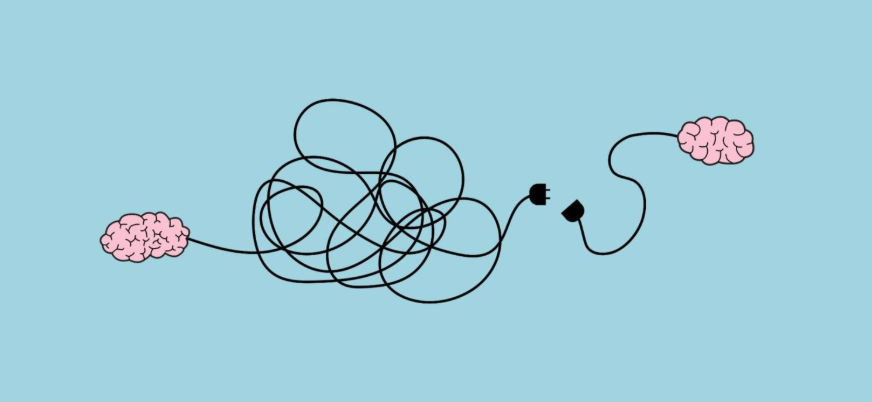
EMDR Therapy and the Transformative Benefits
September 12, 2015
3 Myths About Couples Counselling
September 22, 2015As millennial babies grow up, the way that companies provide services and do business are changing based on the value we now place in technology. Many services are being shifted online to keep up with the demand of easy, flexible, and convenient access. Some of our most personal moments and information are now created and shared on the Internet such as romantic relationships and our banking details. Recently, many aspects of healthcare have gone virtual as well. We can check WebMD and diagnose ourselves with a rare and lethal parasite that is most certainly the cause of our stomachache. We can call nurse hotlines and doctors to get advice about health and medical symptoms, get prescriptions filled over the phone, and book medical appointments online. We put our trust and dependence in numerous virtual services, so what about mental health services?
The term mental health still triggers uncertainty and anxiety for many people. The best way to keep our society thinking progressively about mental health is through education. To put it simply, mental health can be thought of as a continuum ranging from healthy and happy, to distress and struggle. Every single person experiences mental health and falls somewhere on this continuum. It is where an individual falls on this continuum that determines the state of their mental health. As conversations about mental health have begun to spark everywhere, many people have become more comfortable with the idea of actively seeking mental health services, though this is not the case for all. Inhibition could be due to a variety of reasons such as stigma, denial, inaccessibility to qualified clinicians, busy schedules, or mobility restrictions. However, the new era of digitized services that is upon us may just solve nearly all of these issues.
eTherapy, or more commonly known as online counselling, is beginning to gain popularity worldwide, especially among younger generations. eTherapy is a new term to define counselling services that are relayed virtually and involve human interaction between a clinician and patient. eTherapy can include texting, instant messaging, emailing, phone call, or video call correspondences between the clinician and patient for the purposes of mental health, life, and relationship counsel. This is slightly different than online counselling. Online counselling is a broader term than encompasses any type counsel that is obtained over the Internet. It could include actual interaction with a counsellor, self-help websites, resource and information websites, group discussion boards, and any other digital means of help. Though both terms are often used interchangeably and there are multiple definitions, eTherapy can be understood as a specific term to define strictly the human interaction portion of online counselling.
eTherapy can be a highly convenient and functional solution for individuals with busy life schedules to receive the help that they may need, especially students. Many students find themselves feeling overwhelmed, anxious, or depressed during the busy and stressful school year. The thought of taking a few hours of time out of the week to try to schedule counselling appointments around exam schedules, studying, extra curricular activities, and social lives can be perceived as adding to the stress. eTherapy offers individuals and students a way to connect with certified clinicians and receive counselling for challenges they may be facing without having to consider commuting and scheduling difficulties. A large meta-analysis study directly compared Internet intervention therapies versus face-to-face, and found that there were no significant differences in effectiveness, supporting the legitimacy of eTherapy (Barak, Hen, Boniel-Nissim, & Shapira, 2008). When people hear the term eTherapy they may assume that it is a second tier or backup option to traditional face-to-face counselling. The scientific literature, as well as a glance at how we operate in today’s society indicates that eTherapy should not be considered a lesser option. For many, meeting people, forming relationships, and accessing services completely online is second nature.
eTherapy via video, text, and phone has been shown to be an effective means of treating common concerns such as anxiety, depression, eating disorders, panic disorders, and many more concerns (Hailey et al., 2008). However, this is not to say that eTherapy doesn’t have its limitations, and that it will work for everyone. The most important aspect of eTherapy is that it is much more effective than no therapy at all. eTherapy presents us with the opportunity to break down barriers and eliminate concerns that inhibit individuals accessing help. Many people are embarrassed to be seen walking into a mental health professionals office, can’t afford to take time off of work and school, or perhaps don’t have a car or a way of accessing these services. eTherapy and the era of digital services is ground breaking in the sense that it allows services to be offered to anyone, from anywhere, at anytime that suits them. eTherapy provides the opportunity for people to access a service from the comfort of their own home without having to show themselves physically, a service that they may normally feel too anxious or embarrassed to even talk about.
As eTherapy is still a relatively new modality of counselling, it is important that prospective patients are educated on the topic. Credentials of eTherapists should be checked out, as eTherapy is currently an unregulated practice. eTherapy is not an appropriate option for individuals who are experiencing thoughts of suicide, harm to oneself or others, or psychotic episodes. There are databases and websites that advertise eTherapy services, however many of these sites promote unlicensed therapists, require a login and account, or have a service fee. Databases such as www.myetherapist.com verify the credentials of their therapists, do not entail a login or customer fees, and allow you to search and directly contact the therapist that specializes in your concern.
The importance of self-care is undisputable, especially in a competitive academic environment where the game played is “survival of the fittest”. eTherapy is an invaluable option for receiving help and provides individuals with the opportunity to do so while eliminating many deterrents.
This article was written by OCCS’s student clinical therapist assistant, Nicole Legg, and was recently published in Class Magazine.
OCCS offers online counselling services to ensure help and therapeutic services can be provided to all individuals without any mobility, location, or personal limitations. OCCS’s founder and director has also launched a company called MyeTherapist where clinicians who provide counselling services can sign up to join the MyeTherapist database, and clients can search for clinicians who provide online counselling services and specialize in their area of concern. Please visit www.MyeTherapist.com for more information.
References
Barak, A., Hen, L., Boniel-Nissim, M., & Shapira, N. (2008). A comprehensive review and a meta-analysis of the effectiveness of internet-based psychotherapeutic interventions. Journal of Technology in Human Services, 26(2-4). doi: 10.1080/15228830802094429
Hailey,D., Roine, R., & Ohinmaa, A. (2008). The effectiveness of telemental health applications: A review. The Canadian Journal of Psychiatry, 53(11), 769-778. Retrieved from http://publications.cpa-apc.org/media.php?mid=694






